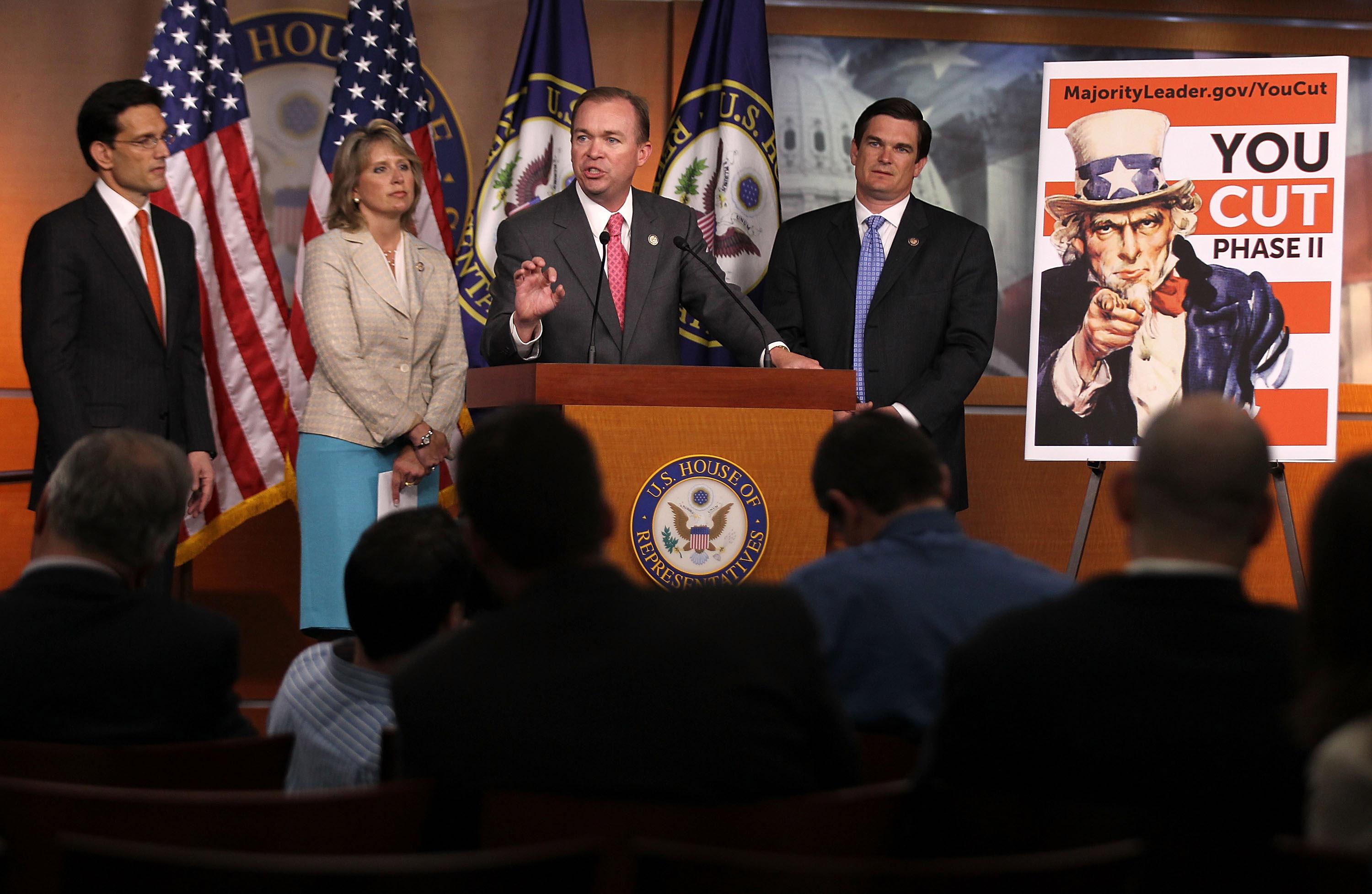A platoon of conservative members of the House held their monthly chat with reporters and bloggers today, and I used the opportunity to ask an irritating question. Republicans were talking about the demands that could come in a debt limit deal, but the debt limit deadline was getting further and further away. The reason: Falling deficit numbers. How much credit would Republicans give to this year’s tax hikes (top income tax, payroll tax) when it came to lowering the deficit? How much to sequestration?
“Why can’t it be all of the above?” said South Carolina Rep. Mick Mulvaney. “I don’t think conservatives have ever made the argument that, in the short-term, a tax increase doesn’t increase revenue. It does. It’s over the mid-term and the long-term that it actually decreases revenues, because it has a negative impact on economic growth. So, certainly, you’re looking at revenues that went up as a result of the fiscal cliff deal, because people have not had time to adjust their behavior. But they will. Over the long term, we continue to believe this will have a negative impact on revenues.” And it wouldn’t change the debt limit politics. “You’re still looking at $469 billion deficit this year, which but for the last four years would be the largest peacetime deficit in the history of this nation.”
Idaho Rep. Raul Labrador echoed his colleague. “You have to realize that it’s because of policies that we put in place and everything that we stopped over the last three years that we have this kind of deficit,” he said. “If we were to continue spending at the rate Obama wanted to spend, we’d have a larger deficit. [And] one of the reasons we have so much revenue is because of what happened at the end of the year last year, when a bunch of people rushed off to sell a bunch of their properities. They had huge capital gains in their personal finances so they could avoid capital gains [tax] increases this year. Some experts are saying we have a bubble now, and we’re not going to see the same thing this year.”
Labrador and Mulvaney didn’t cite the exact study or experts, but that served to close the discussion.
